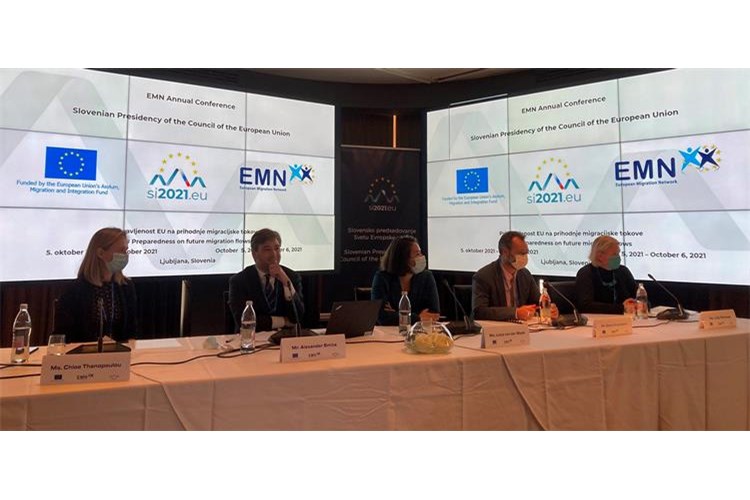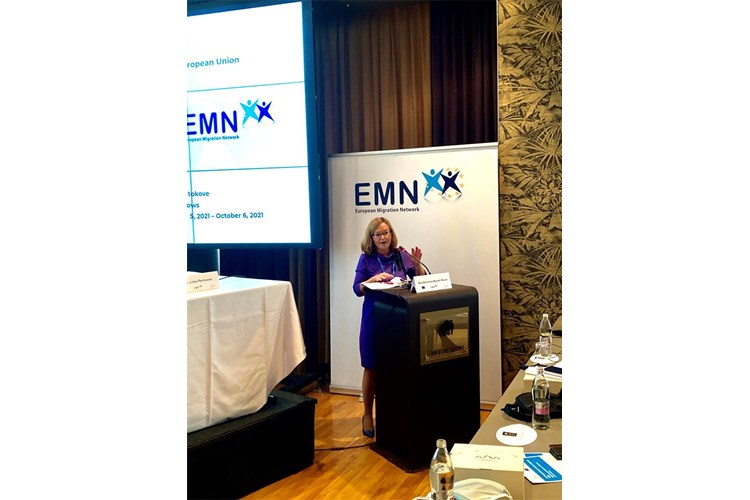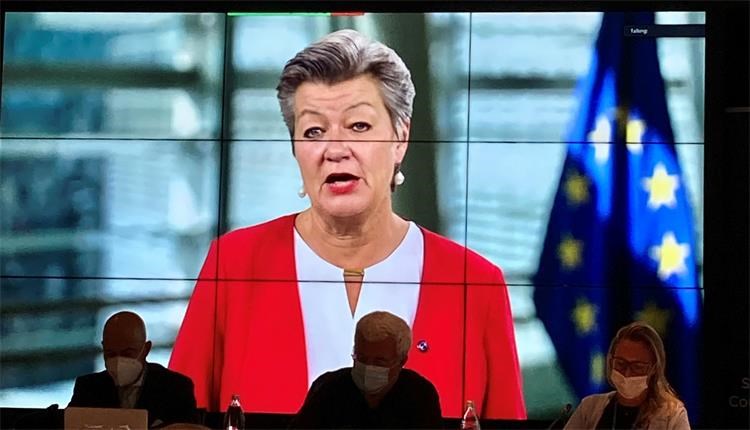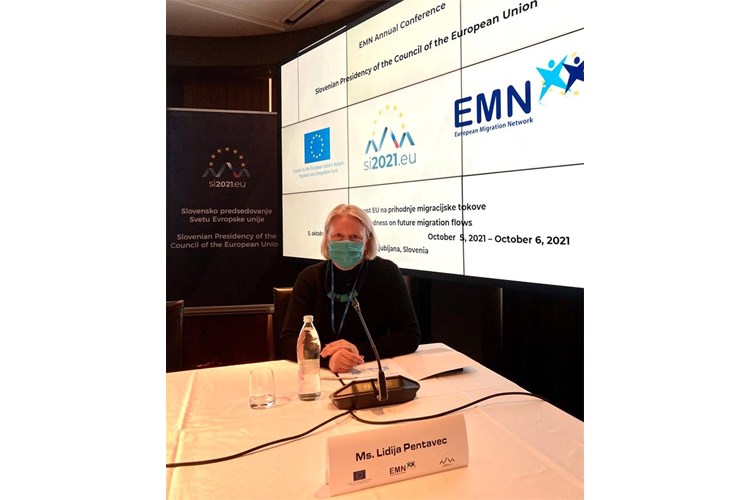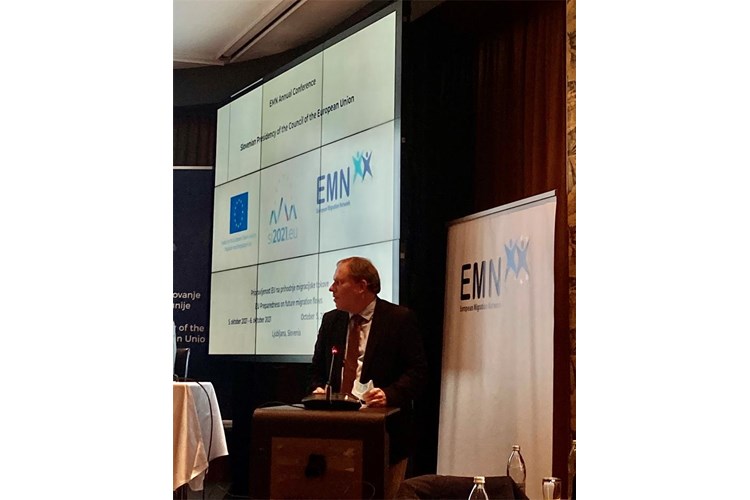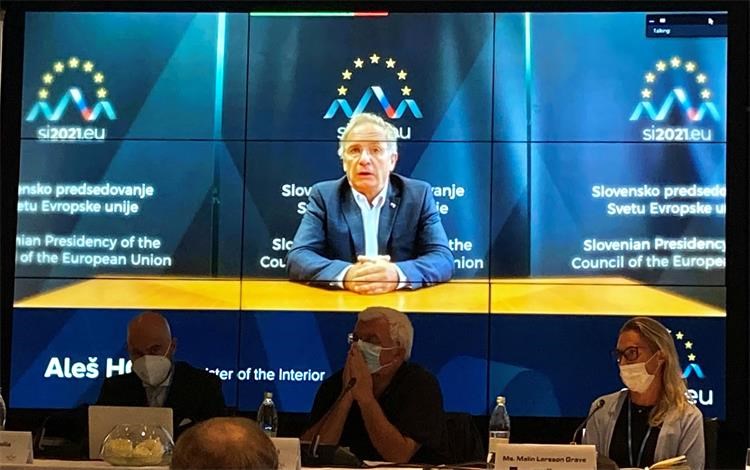- Published: 11.10.2021.
The EMN Annual Conference "EU Preparedness for Future Migration Flows" was organized
On 5 and 6 October 2021, the EMN Annual Conference was held as part of the Slovenian Presidency of the EU Council on the topic of EU readiness for future migration flows
Establishing a comprehensive European approach to migration management is one of the key elements of the presidency of the Council of the European Union of Germany, Portugal and Slovenia. The European Union is currently developing mechanisms that include exploring possible tools to better predict migration flows in the form of artificial intelligence and digitalisation, as well as policies at EU and national level. Also, the EU Pact on Migration and Asylum aims to support the building of a system that manages and normalises migration for the long term and which is fully grounded in European values and international law. Also, as a result of the COVID-19 pandemic, the number of illegal border crossings and asylum claims in EU Member States in 2020 has decreased compared to previous years.
The conference focused on the European Union's readiness for asylum and illegal migration flows, bringing together relevant European and national stakeholders to discuss current developments, existing and possible future tools for predicting migration flows, and the role of EU agencies in this area. The conference was divided into four panels in two days (the first three panels were held on the first day, and the fourth was held on the second day of the conference). The main speakers who opened the conference were Slovenian Minister of the Interior Aleš Hojs and European Commissioner for Home Affairs Ylva Johansson.
The first panel opened with the latest developments in the context of the Western Balkans, such as migration, policy development at European and national level. Speakers were representatives of EASO and FRONTEX and a representative of the Commissariat for Refugees and Migration of the Republic of Serbia.
The second panel discussed the types of risk assessment tools for predicting migration flows, and the role of digitization and artificial intelligence. The panel was initially supposed to include a representative from Egypt to note how migration flows in third countries could affect the EU in the future, but the panelist was prevented from attending the conference.
The third panel presented developments and ambitions in the areas of border management, asylum application processing and reception centers. They discussed how EU countries and agencies manage the return of migrants whose asylum applications have not been approved, and how co-operation can be strengthened. The National Coordinator of EMN NCP HR and the Head of the Department in the Service for Illegal Migration of the Ministry of the Interior of the Republic of Croatia, Lidija Pentavec, presented the Croatian perspective on this topic.
On the second day of the conference, the fourth and last panel was held, which presented ways to improve cross-border cooperation and new concepts of border management.
